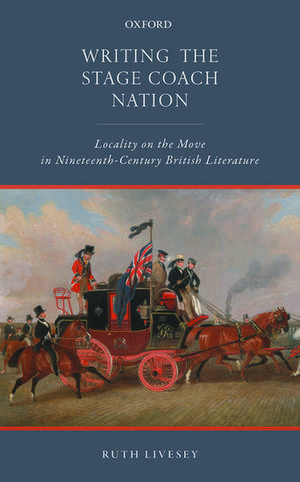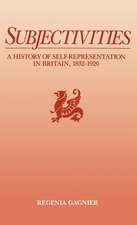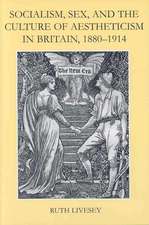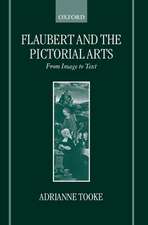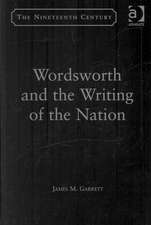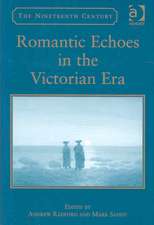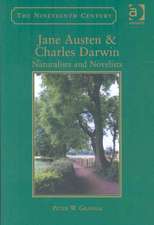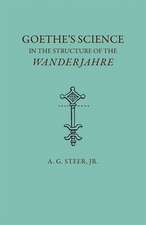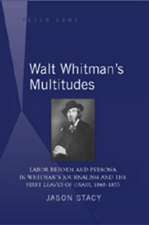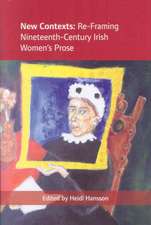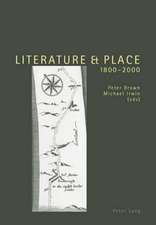Writing the Stage Coach Nation: Locality on the Move in Nineteenth-Century British Literature
Autor Ruth Liveseyen Limba Engleză Hardback – 15 sep 2016
Preț: 497.85 lei
Preț vechi: 713.74 lei
-30% Nou
Puncte Express: 747
Preț estimativ în valută:
95.26€ • 99.46$ • 78.84£
95.26€ • 99.46$ • 78.84£
Carte disponibilă
Livrare economică 04-10 martie
Preluare comenzi: 021 569.72.76
Specificații
ISBN-13: 9780198769439
ISBN-10: 0198769431
Pagini: 258
Ilustrații: 16 black and white halftones
Dimensiuni: 137 x 222 x 20 mm
Greutate: 0.45 kg
Editura: OUP OXFORD
Colecția OUP Oxford
Locul publicării:Oxford, United Kingdom
ISBN-10: 0198769431
Pagini: 258
Ilustrații: 16 black and white halftones
Dimensiuni: 137 x 222 x 20 mm
Greutate: 0.45 kg
Editura: OUP OXFORD
Colecția OUP Oxford
Locul publicării:Oxford, United Kingdom
Recenzii
...overall, an excellent and intricately considered work. Livesey's impressive study makes a convincing case for the integration of the stage and mail coach into critical understandings of nineteenth-century transport.
Ruth Livesey argues that Victorians spatialized the recent past, conceiving it as nonlinear. This temporal mapping, Livesey contends, was achieved by understanding the nation not in terms of the homogenizing effects of rail travel but in terms of the localism preserved by the stagecoach.
Firm scholastic foundations underpin Livesey's thesis; she engages with numerous critics and theorists, and is meticulous and generous in her referencing.
Livesey's argument is complex yet highly rewarding, and the energy of the writing makes the reading as enjoyable as it is informative. Not least, the book will make readers wish to revisit nineteenth-century fiction, pausing in those places where the stage coach makes its appearance, however fleeting.
Writing the Stage Coach Nation is recommended reading for anyone interested in the way that the nineteenth-century novel theorizes time and space, imagines the region or nation, or responds to the new and old technologies of transportation that moved people, letters, and ideas from place to place... The book also makes frequent reference to relevant eighteenth-century contexts and influences.
...Writing the Stage Coach Nation does what it sets out to do admirably, returning us to the original novels with a new sense of the cultural work that their evocation of the past performed for a nation that felt itself to be hurtling into the future.
Livesey's willingness to work across literary periods in this way greatly enriches the value of this excellent and eloquently written study. One hopes that this aspect of Livesey's scholarship, and the integration of literary criticism, cultural history, and mobilities studies that her book models, will inspire other researchers to follow her lead.
Livesey handles the literary texts and the socio-historical context with equal assurance and her study brings the two into fruitful conjunction.The web of connections between text and context is finely spun...this scholarly study, whose arguments are supported by reference to the latest scholarship, will prove highly rewarding.
Ruth Livesey argues that Victorians spatialized the recent past, conceiving it as nonlinear. This temporal mapping, Livesey contends, was achieved by understanding the nation not in terms of the homogenizing effects of rail travel but in terms of the localism preserved by the stagecoach.
Firm scholastic foundations underpin Livesey's thesis; she engages with numerous critics and theorists, and is meticulous and generous in her referencing.
Livesey's argument is complex yet highly rewarding, and the energy of the writing makes the reading as enjoyable as it is informative. Not least, the book will make readers wish to revisit nineteenth-century fiction, pausing in those places where the stage coach makes its appearance, however fleeting.
Writing the Stage Coach Nation is recommended reading for anyone interested in the way that the nineteenth-century novel theorizes time and space, imagines the region or nation, or responds to the new and old technologies of transportation that moved people, letters, and ideas from place to place... The book also makes frequent reference to relevant eighteenth-century contexts and influences.
...Writing the Stage Coach Nation does what it sets out to do admirably, returning us to the original novels with a new sense of the cultural work that their evocation of the past performed for a nation that felt itself to be hurtling into the future.
Livesey's willingness to work across literary periods in this way greatly enriches the value of this excellent and eloquently written study. One hopes that this aspect of Livesey's scholarship, and the integration of literary criticism, cultural history, and mobilities studies that her book models, will inspire other researchers to follow her lead.
Livesey handles the literary texts and the socio-historical context with equal assurance and her study brings the two into fruitful conjunction.The web of connections between text and context is finely spun...this scholarly study, whose arguments are supported by reference to the latest scholarship, will prove highly rewarding.
Notă biografică
Ruth Livesey is Reader in Nineteenth-Century Literature and Thought in the Department of English, Royal Holloway, University of London. She is the author of Socialism, Sex, and the Culture of Aestheticism in Britain, 1880-1914 (OUP, 2007), and co-editor of The American Experiment and the Idea of Democracy in British Culture, 1776-1914 (Ashgate, 2013). She was an editor of Journal of Victorian Culture from 2008 to 2015.
